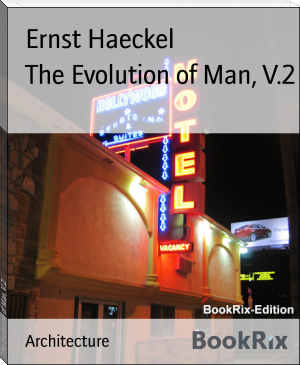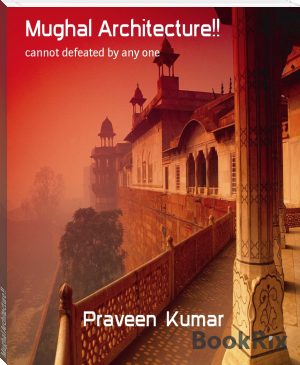The Brethren, H. Rider Haggard [ebooks that read to you .txt] 📗

- Author: H. Rider Haggard
Book online «The Brethren, H. Rider Haggard [ebooks that read to you .txt] 📗». Author H. Rider Haggard
"Well," said Godwin eagerly, "is all ready?"
She nodded and answered:
"At length, all. To-morrow afternoon an assault will be made upon Ascalon, but even if it is taken the camp will not be moved that night. There will be great confusion, and Abdullah, who is somewhat sick, will be the captain of the guard over the princess's tent. He will allow the soldiers to slip away to assist in the sack of the city, nor will they betray him. At sunset but one eunuch will be on watch--Mesrour; and I will find means to put him to sleep. Abdullah will bring the princess to this garden disguised as his young son, and there you two and I shall meet them."
"What then?" asked Godwin.
"Do you remember the old Arab who brought you the horses Flame and Smoke, and took no payment for them, he who was named Son of the Sand? Well, as you know, he is my uncle, and he has more horses of that breed. I have seen him, and he is well pleased at the tale of Flame and Smoke and the knights who rode them, and more particularly at the way in which they came to their end, which he says has brought credit to their ancient blood. At the foot of this garden is a cave, which was once a sepulchre. There we shall find the horses--four of them--and with them my uncle, Son of the Sand, and by the morning light we will be a hundred miles away and lie hid with his tribe until we can slip to the coast and board a Christian ship. Does it please you?"
"Very well; but what is Abdullah's price?"
"One only--the enchanted star, the Luck of the House of Hassan; for nothing else will he take such risks. Will Sir Wulf give it?"
"Surely," answered Godwin with a laugh.
"Good. Then it must be done to-night. When I return I will send Abdullah to your tent. Fear not; if he takes the jewel he will give the price, since otherwise he thinks it will bring him ill fortune."
"Does the lady Rosamund know?" asked Godwin again.
She shook her head.
"Nay, she is mad to escape; she thinks of little else all day long. But what is the use of telling her till the time comes? The fewer in such a plot the better, and if anything goes wrong, it is well that she should be innocent, for then--"
"Then death, and farewell to all things," said Godwin; "nor indeed should I grieve to say them good-bye. But, Masouda, you run great peril. Tell me now, honestly, why do you do this?"
As he spoke the lightning flashed and showed her face as she stood there against a background of green leaves and red lily flowers. There was a strange look upon it--a look that made Godwin feel afraid, he knew not of what.
"Why did I take you into my inn yonder in Beirut when you were the pilgrims Peter and John? Why did I find you the best horses in Syria and guide you to the Al-je-bal? Why did I often dare death by torment for you there? Why did I save the three of you? And why, for all this weary while, have I--who, after all, am nobly born--become the mock of soldiers and the tire-woman of the princess of Baalbec?
"Shall I answer?" she went on, laughing. "Doubtless in the beginning because I was the agent of Sinan, charged to betray such knights as you are into his hands, and afterwards because my heart was filled with pity and love for--the lady Rosamund."
Again the lightning flashed, and this time that strange look had spread from Masouda's face to the face of Godwin.
"Masouda," he said in a whisper, "oh! think me no vain fool, but since it is best perhaps that both should know full surely, tell me, is it as I have sometimes--"
"Feared?" broke in Masouda with her little mocking laugh. "Sir Godwin, it is so. What does your faith teach--the faith in which I was bred, and lost, but that now is mine again--because it is yours? That men and women are free, or so some read it. Well, it or they are wrong. We are not free. Was I free when first I saw your eyes in Beirut, the eyes for which I had been watching all my life, and something came from you to me, and I--the cast-off plaything of Sinan--loved you, loved you, loved you--to my own doom? Yes, and rejoiced that it was so, and still rejoice that it is so, and would choose no other fate, because in that love I learned that there is a meaning in this life, and that there is an answer to it in lives to be, otherwhere if not here. Nay, speak not. I know your oath, nor would I tempt you to its breaking. But, Sir Godwin, a woman such as the lady Rosamund cannot love two men," and as she spoke Masouda strove to search his face while the shaft went home.
But Godwin showed neither surprise nor pain.
"So you know what I have known for long," he said, "so long that my sorrow is lost in the hope of my brother's joy. Moreover, it is well that she should have chosen the better knight."
"Sometimes," said Masouda reflectively, "sometimes I have watched the lady Rosamund, and said to myself, 'What do you lack? You are beautiful, you are highborn, you are learned, you are brave, and you are good.' Then I have answered, 'You lack wisdom and true sight, else you would not have chosen Wulf when you might have taken Godwin. Or perchance your eyes are blinded also.' "
"Speak not thus of one who is my better in all things, I pray you," said Godwin in a vexed voice.
"By which you mean, whose arm is perhaps a little stronger, and who at a pinch could cut down a few more Saracens. Well, it takes more than strength to make a man--you must add spirit."
"Masouda," went on Godwin, taking no note of her words, "although we may guess her mind, our lady has said nothing yet. Also Wulf may fall, and then I fill his place as best I can. I am no free man, Masouda."
"The love-sick are never free," she answered.
"I have no right to love the woman who loves my brother; to her are due my friendship and my reverence-- no more."
"She has not declared that she loves your brother; we may guess wrongly in this matter. They are your words--not mine."
"And we may guess rightly. What then?"
"Then," answered Masouda, "there are many knightly Orders, or monasteries, for those who desire such places--as you do in your heart. Nay, talk no more of all these things that may or may not be. Back to your tent, Sir Godwin, where I will send Abdullah to you to receive the jewel. So, farewell, farewell."
He took her outstretched hand, hesitated a moment, then lifted it to his lips, and went. It was cold as that of a corpse, and fell against her side again like the hand of a corpse. Masouda shrank back among the flowers of the garden as though to hide herself from him and all the world. When he had gone a few paces, eight or ten perhaps, Godwin turned and glanced behind him, and at that moment there came a great blaze of lightning. In its fierce and fiery glare he saw Masouda standing with outstretched arms, pale, upturned face, closed eyes, and parted lips. Illumined by the ghastly sheen of the levin her face looked like that of one new dead, and the tall red lilies which climbed up her dark, pall-like robe to her throat--yes, they looked like streams of fresh-shed blood.
Godwin shuddered a little and went his way, but as she slid thence into the black, embracing night, Masouda said to herself:
"Had I played a little more upon his gentleness and pity, I think that he would have offered me his heart--after Rosamund had done with it and in payment for my services. Nay, not his heart, for he has none on earth, but his hand and loyalty. And, being honourable, he would have kept his promise, and I, who have passed through the harem of Al-je-bal, might yet have become the lady D'Arcy, and so lived out my life and nursed his babes. Nay, Sir Godwin; when you love me--not before; and you will never love me--until I am dead."
Snatching a bloom of the lilies into her hand, the hand that he had kissed, Masouda pressed it convulsively against her breast, till the red juice ran from the crushed flower and stained her like a wound. Then she glided away, and was lost in the storm and the darkness.
Chapter Twenty(The Luck of the Star of Hassan)
An hour later the captain Abdullah might have been seen walking carelessly towards the tent where the brethren slept. Also, had there been any who cared to watch, something else might have been seen in that low moonlight, for now the storm and the heavy rain which followed it had passed. Namely, the fat shape of the eunuch Mesrour, slipping after him wrapped in a dark camel-hair cloak, such as was commonly worn by camp followers, and taking shelter cunningly behind every rock and shrub and rise of the ground. Hidden among some picketed dromedaries, he saw Abdullah enter the tent of the brethren, then, waiting till a cloud crossed the moon, Mesrour ran to it unseen, and throwing himself down on its shadowed side, lay there like a drunken man, and listened with all his ears. But the thick canvas was heavy with wet, nor would the ropes and the trench that was dug around permit him, who did not love to lie in the water, to place his head against it. Also, those within spoke low, and he could only hear single words, such as "garden," "the star," "princess."
So important did these seem to him, however, that at length Mesrour crept under the cords, and although he shuddered at its cold, drew his body into the trench of water, and with the sharp point of his knife cut a little slit in the taut canvas. To this he set his eye, only to find that it served him nothing, for there was no light in the tent. Still, men were there who talked in the darkness.
"Good," said a voice--it was that of one of the brethren, but which he could not tell, for even to those who knew them best they seemed to be the same. "Good; then it is





Comments (0)